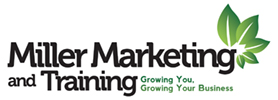Are You A Triple-A Salesperson?
“Remember, Brad,” Dad would remind me during a talk to get out there and make things happen, “nothing happens until someone sells something.” Boy, do I remember that one.
The wisdom he instilled me with as I started my company at the ripe (and very ignorant) age of 20 still affects my attitude toward sales today. What he most wanted to impress on me was that sales would drive my company and that selling is the only revenue-generating function; everything else is a cost center. It’s the most important function of any company, because without sales, all other functions are superfluous.
Focus Your Attention on Sales
My father’s chunks of wisdom have really helped me focus on sales as my top priority. However, like many salespeople, I oftentimes fall victim to the “tyranny of the urgent,” allowing miscellaneous busy work to steal my golden selling hours. We must be diligent in continually centering our attention on our sales departments. How can it be more productive? If the act of selling is so important to our success, then the person actually selling is essential.
Every great sales department (sometimes, as in my case, a department of one) is driven by individuals. These people are skilled and motivated and take their profession seriously. Is this how you feel about yourself and your selling career? You’re not merely an “order taker,” you’re a professional who is continually learning, growing and developing better selling and people skills.
You’re in high demand because the American economy is built on consumerism. There’s not a company anywhere that wouldn’t snatch a top-producing salesperson. There’s no better job security in the world than holding the position of a professional salesperson.
Putting The “Pro” in Professional
What does a professional salesperson look like? What does he think? What makes her tick? To me, he or she is a “Triple-A” person characterized by Appearance, Attitude and Action.
Recently, in the March/April issue of INTERIORSCAPE, Nelson Hammer wrote a column about his experience speaking at a recent interiorscape conference. In it, he said he was a little surprised by the reluctance of those in attendance to buy into his idea of how a professional salesperson should look (i.e. dress). Many thought shorts topped with their company’s polo shirt was just fine – these were salespeople.
In Nelson’s defense, the best rule of thumb is dress to math your prospect’s appearance. Usually for men, this means a dress shirt (add ten points for starch), tie and business suit. For women, it means a dress. How many people have you sold to lately who were sporting a polo shirt, shorts and tennis shoes? A few – maybe.
Pay Attention – Down To Your Shoes
Remember also to pay particular attention to your shoes. In Robert Redford’s movie, Sneakers, he is the head of a down-and-out company that specializes in revealing security weaknesses. Sitting around the office one day with his feet up and nothing to do, Redford looks up as one of his staff rushes in to announce two hot looking prospects. In a one-work question, Redford simply asks, “Shoes?”
“Italian leather,” comes the reply.
With that, he jumps up, buttons his shirt, straightens his tie and puts on his jacket to go out and meet the two important prospects. The moral here is not to buy Italian shoes, but rather, to make sure your shoes are polished, clean and not overly worn. It’s a detail people just notice. Ironically, I was the moderator for Nelson’s presentation, and this time, in defense of my fellow interiorscapers, it really didn’t help his case that he was wearing Top-Siders during his presentation. (Sorry, Nelson.)
Sell Yourself First
Your prospects aren’t just buying plants or services; in a sense, they’re buying you as a salesperson. Does your appearance create confidence in their minds? Is your appearance adding to or distracting from your purpose?
Here’s one way I check. Before my next sales day, I take a look in a full-length mirror and recite the Serenity Prayer: “Lord, grant me the serenity to accept the things I cannot change, the courage to change the things I can, and the wisdom to know the difference.”
In short, I do everything possible to make myself the most attractive package possible.
Attitudes are Built on Beliefs
Volumes could be (and have been) written on attitudes, which essentially evolve from our beliefs in or about something important to us. As an interiorscaper, I find it’s best to regularly evaluate my beliefs in myself and my product or services.
Nothings affects your daily productivity more than your beliefs about yourself and your ability. The first battleground for every salesperson is in his or her own mind. Appropriately, the analogy of a garden works well here: Left untended a garden quickly becomes unsightly; weed choke out the once productive plot.
We need to practice mental gardening daily – not just “weeding out” the negatives, but “planting” positive thoughts of the outcomes we desire. Truly, it is amazing how our attitude and belief in ourself affects the viability of the marketplace and our sales. Good attitudes equal good results; bad attitudes equal bad results. It really is that simple.
You seldom hear a real professional complaining about the economy or a down market. As one top salesman has often said, “Your business is never really good or bad out there. Your business is either good or bad between your own two ears”
Develop a Belief in Your Product
When the pressure is on and you’re in one of those tough selling situations, your belief in your product or service will give you the mental advantage. Your strong conviction that plants are an essential part of a professional office setting will give you the added “umph” to close a tough sale. We must be convinced in our own minds first about the numerous benefits of live interior plants before trying to convince or persuade others.
It’s your belief in the industry and your company’s ability to deliver quality that will give your prospect confidence, persuading them to bu. A sales friend of mine jokingly says, “When you can fake sincerity, you’ve got it made.” Of course, most people cannot fake true conviction and belief, because it comes form a complete knowledge of the product, the competition and the marketplace.
Shape Up Your Knowledge and Beliefs
Here’s a great exercise to help build your product knowledge as well as your convictions and beliefs at the same time. Spend some time in a quiet place with a pen and paper, listing as many benefits as you can about having live interior plant leasing (or other products you sell). The first 10 to 20 will come easily, but continue and shoot for 100 benefits. This exercise will not only boost your convictions, but boost your sales, too.
Here’s the acid test to determine your real belief in your product and industry – caution, this one may sting a little. What do the live interior plants look like in your office? What do they look like in your home?
What did you say? You don’t have any plants in your home? Do the plants in your office look like you have a professional maintenance contract, or better yet, that you sell maintenance contracts?
If you said, “Well, we don’t have clients come to our office” – that’s the wrong answer! Let me illustrate the point.
Zig Ziglar, a famous author and sales motivator, tells a story about helping out a struggling salesman when they both sold cookware door to door. Ziglar asked the man what kind of cookware he used at home. Right away, the under-producing salesman knew what Ziglar was getting at and started listing reason after reason why he had yet to purchase the same cookware he was trying to persuade others to buy.
“Unless you have invested your own money in this cookware and used it to prepare meals for your family, you’ll never be able to persuade another person to use it for their family,” was Ziglar’s reply. Likewise, our convictions will “grow” as we use and enjoy the benefits of live plants in our own interior spaces.
Just in case you’re wondering, yes, I do have plants in my home, (a gorgeous 10’ Rhapis, a 9’ white bird and an 8’ ponytail in the living room along with about a dozen or so 10” and 14” plants throughout).
It’s All Useless Without Action
In no other career is there the level of autonomy as in the career of a professional salesperson. This is, to be sure, a tremendous blessing, but for the undisciplined, it’s why they are ex-salespeople. Being successful in a selling career requires a tremendous amount of action. It has been rightly called “Massive-Action.”
You can be sure a lack of action is revealed quickly. If sales are few and commission checks are small, there’s one reason – not enough action! If you’re wondering, action in selling means making more calls, seeing more people and working very hard. It’s also working on the right things very hard. There are a hundred things every day that can keep us busy, but none of them will lead us closer to a closed sale. The busyness traps we fall into prevent us from doing the job of a professional salesperson. What exactly is that job? I heard the perfect three-word answer from a veteran: “See the people!” The painful truth is, we’re really only doing our job when we’re “belly-to-belly, cheek-to-cheek” with a prospect. (Telephoning could be considered cheek-to-cheek.)
Here’s another test. Determine your action level by evaluating when you do the things that lead to closed sales. At the beginning of the week, keep a log of all the time your spend in front of a prospect either in person or on the telephone. You get no credit for time spent writing proposals, talking to vendors or sitting at your desk “looking” busy.
Please don’t get too discouraged at the end of the week when you total the minutes (not hours) you were doing you “job.” This exercise is just meant to remind us that the golden hours of selling are from nine to five. They cannot be wasted on unproductive busy work!
Everyday, we must wake up with the attitude that “today I am really going to make things happen.” As professional salespeople, we “make things happen” by taking action. Take action and you’ll take off. Appearance, attitude and action are essential keys to building a lifetime of successful selling. Many times, a lost sale is not related to high price or a competitor’s advantage, but the lack of attention paid to a professional characteristic that turns the prospect off.
If we become aware of an area lacking in ourselves, the best strategy is to pick one, or at most, two qualities and work on those until we see improvement. As the salesperson improves, so will the salesperson’s sales.




